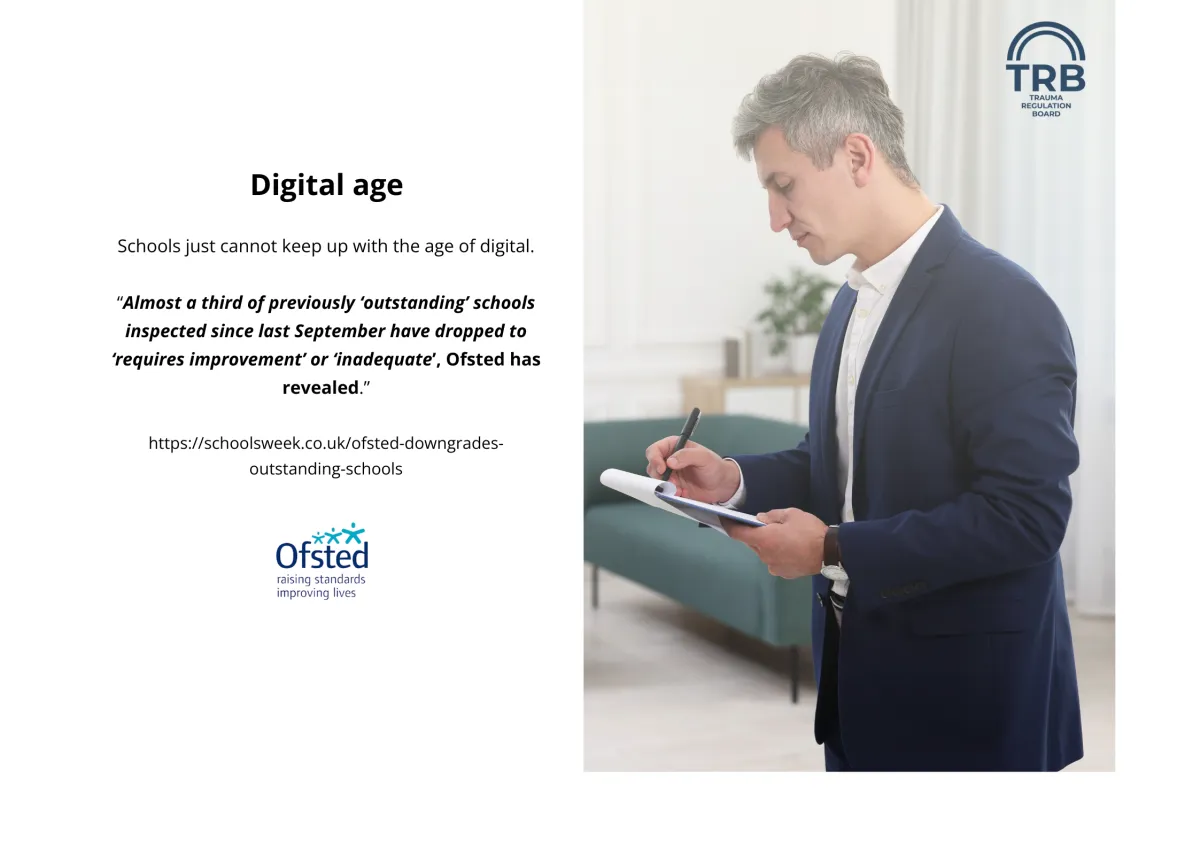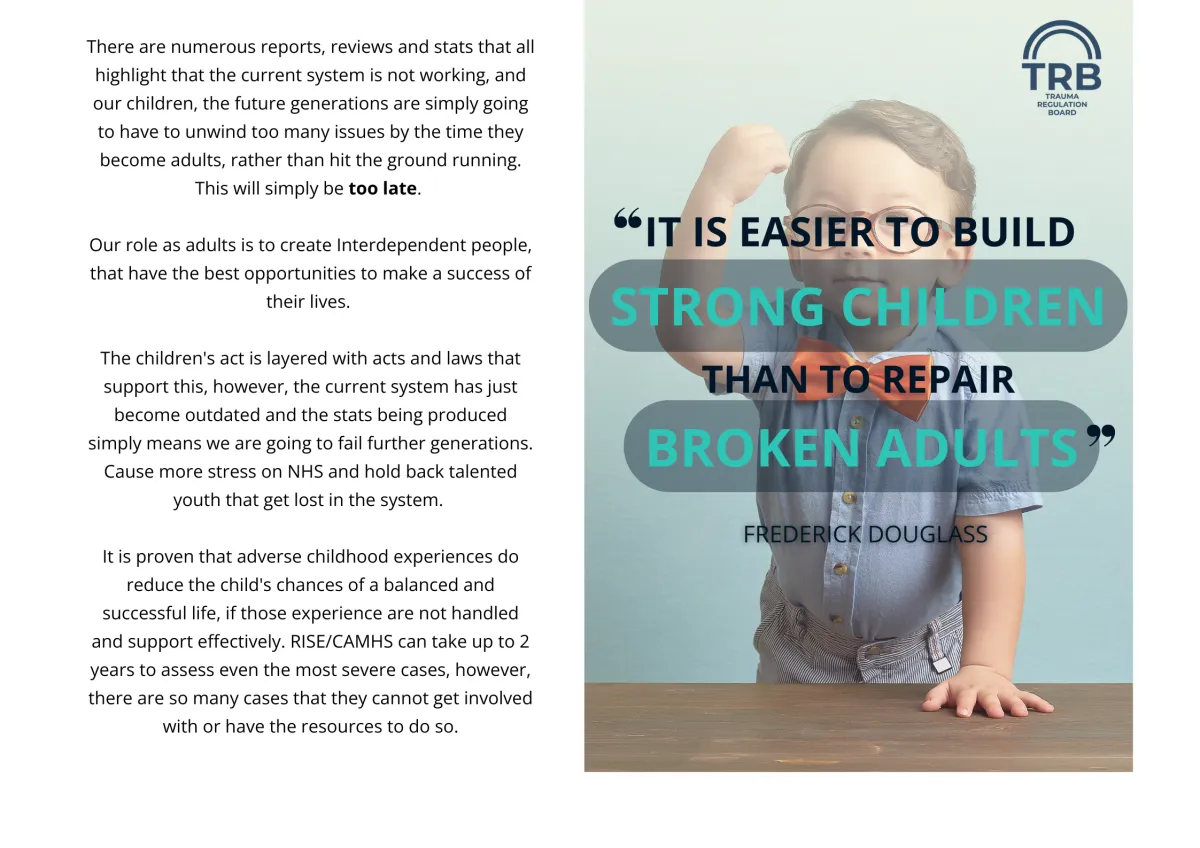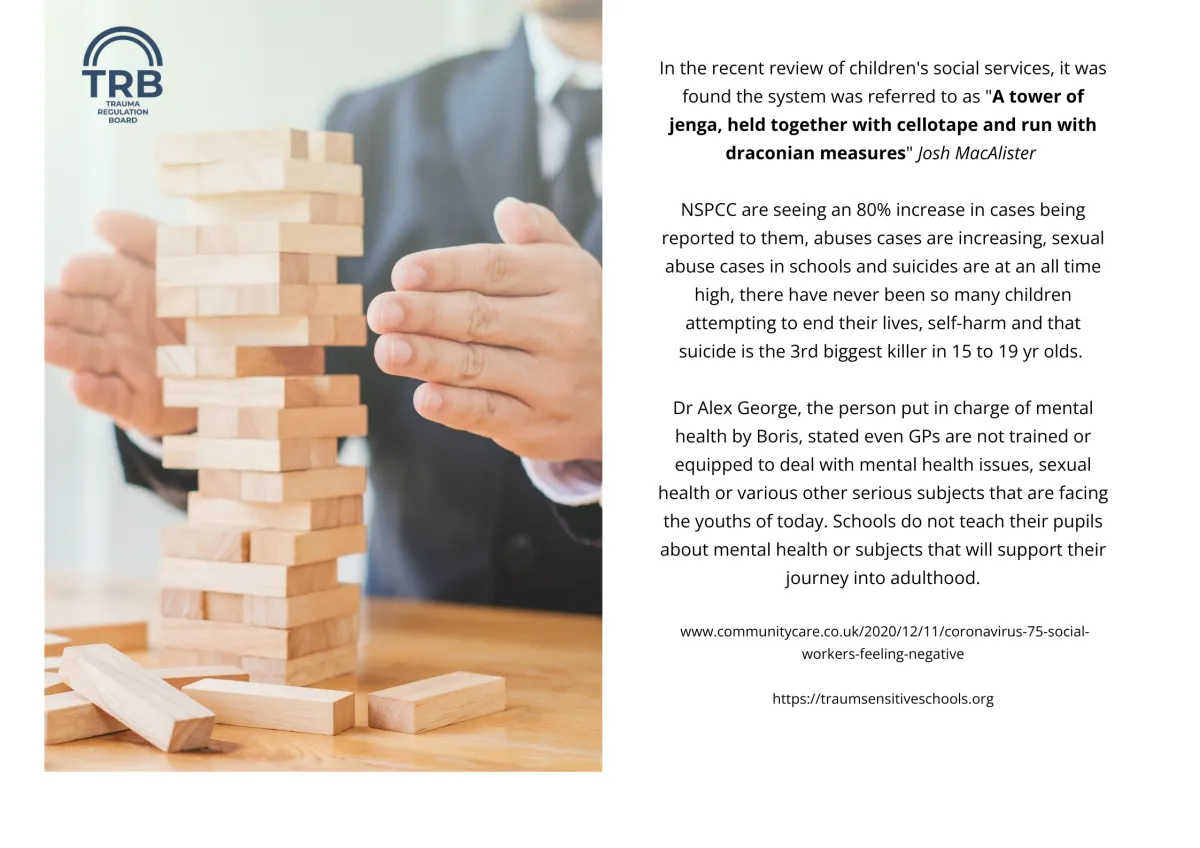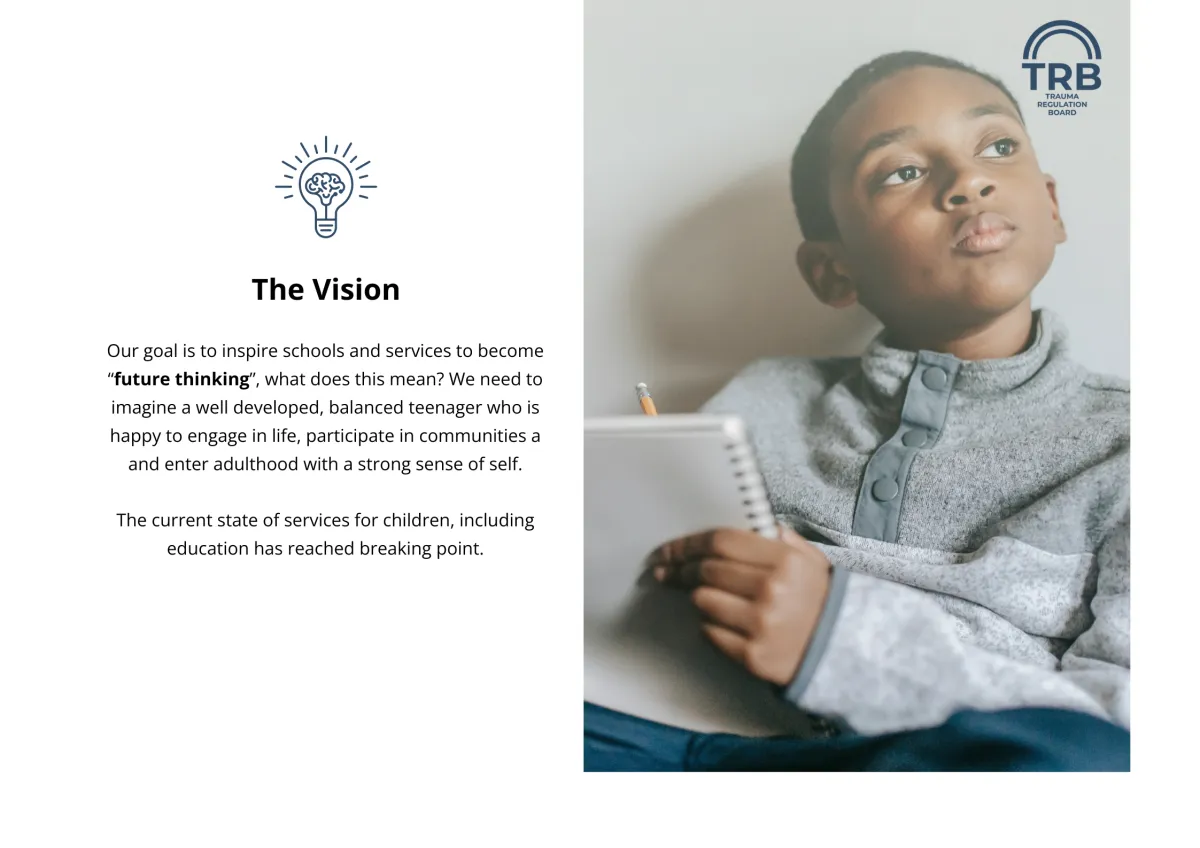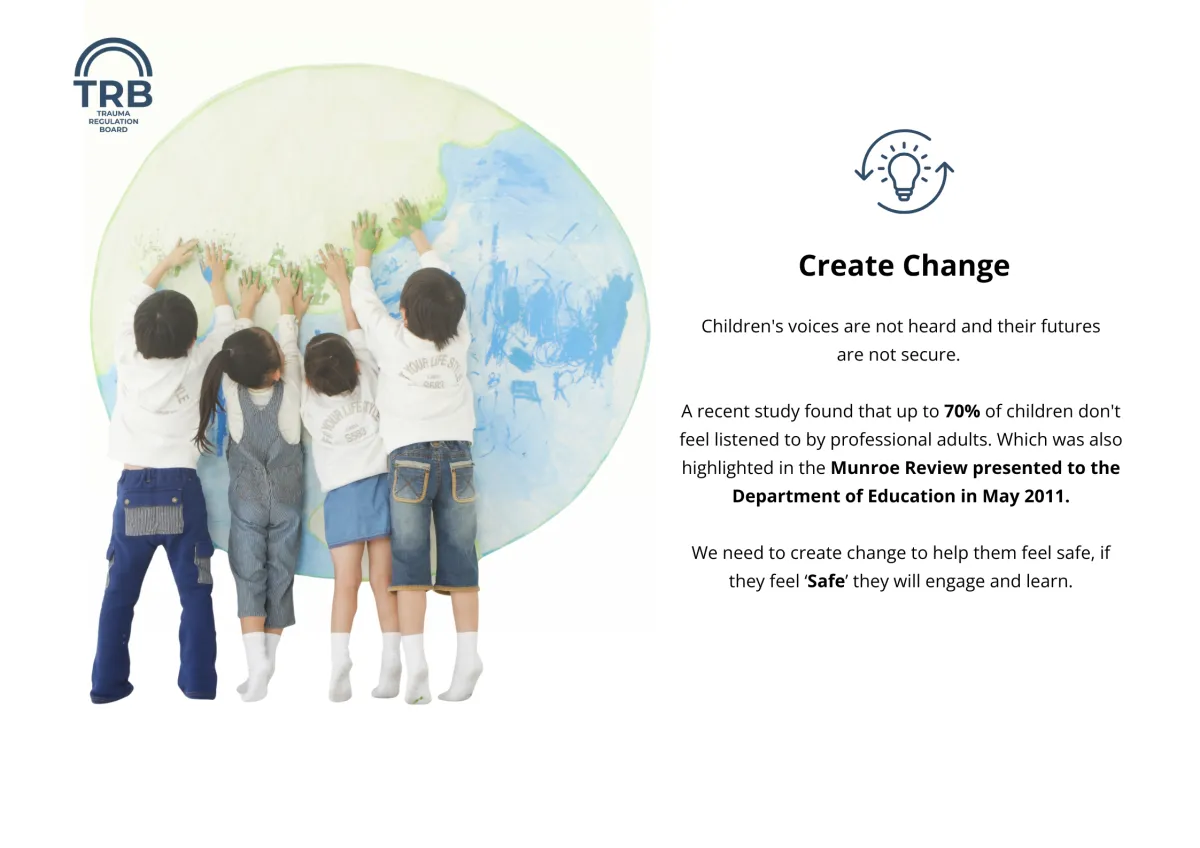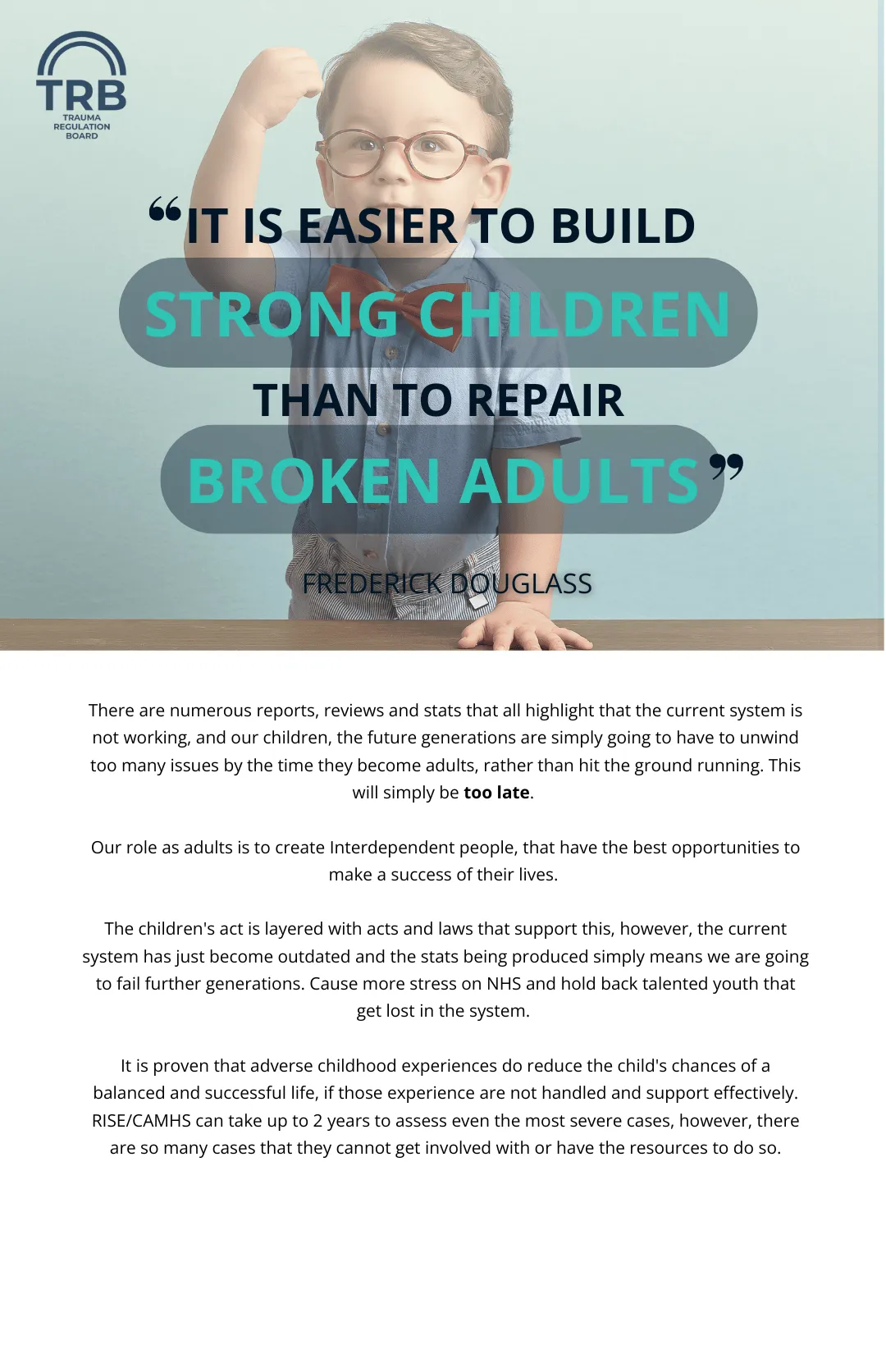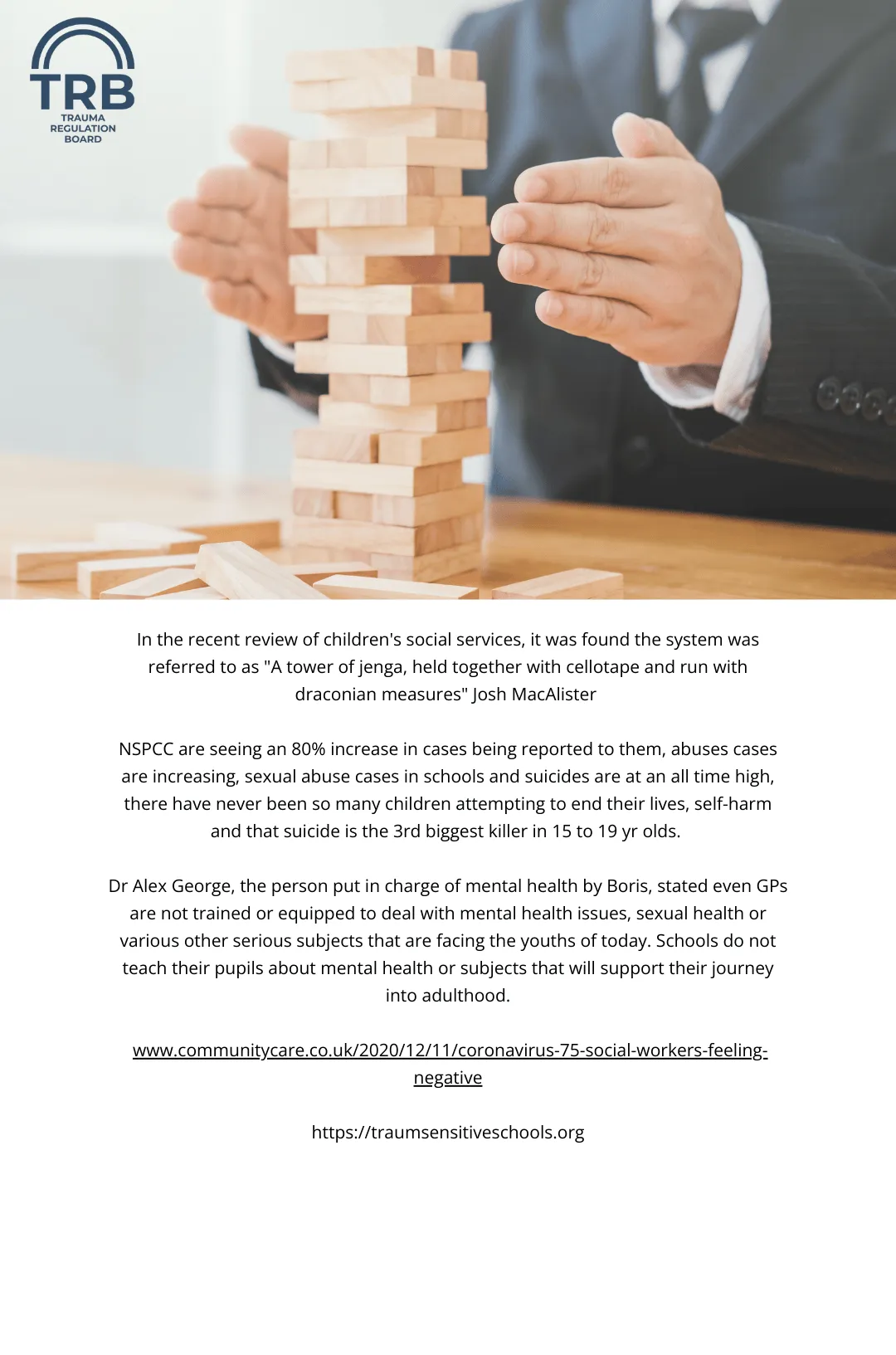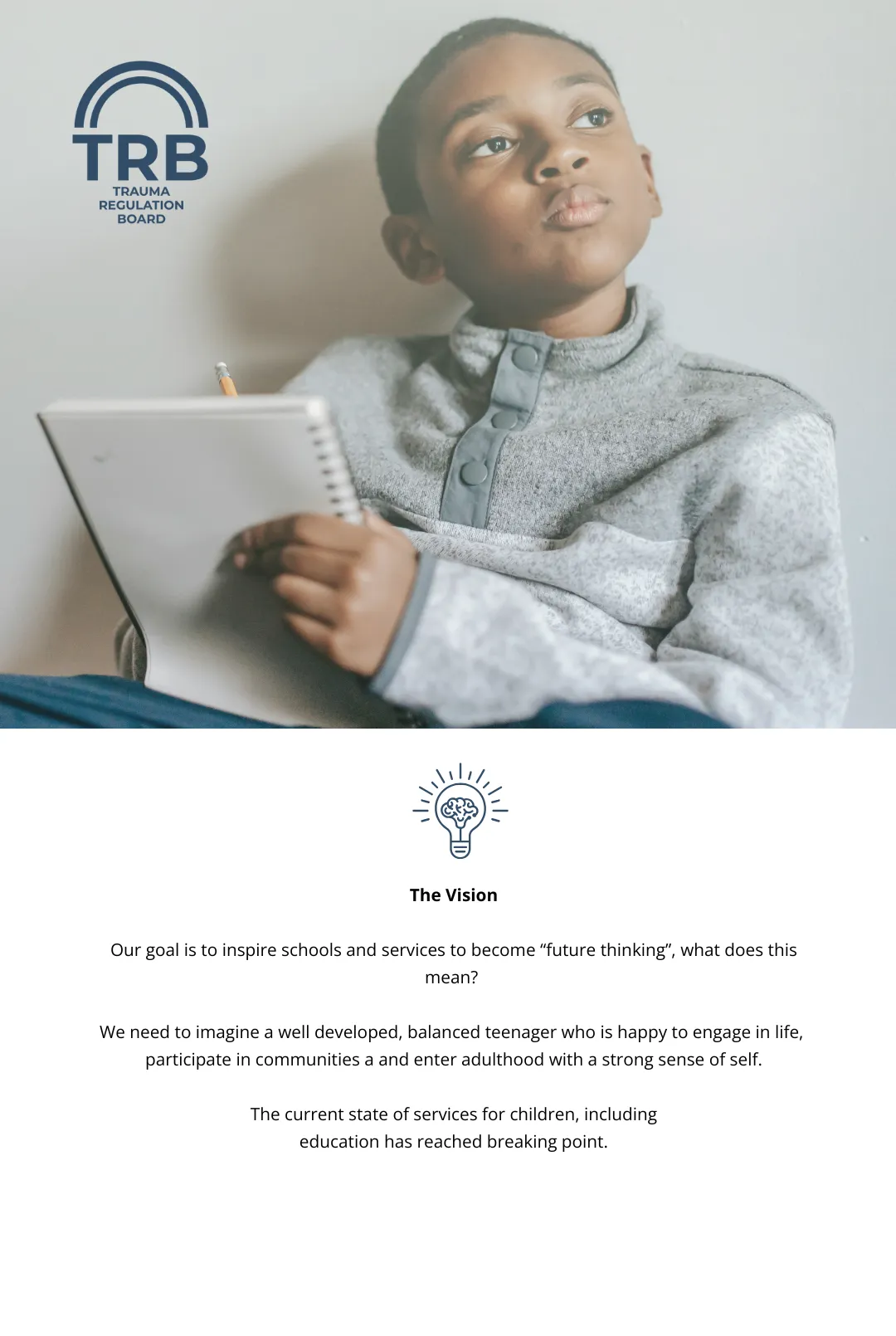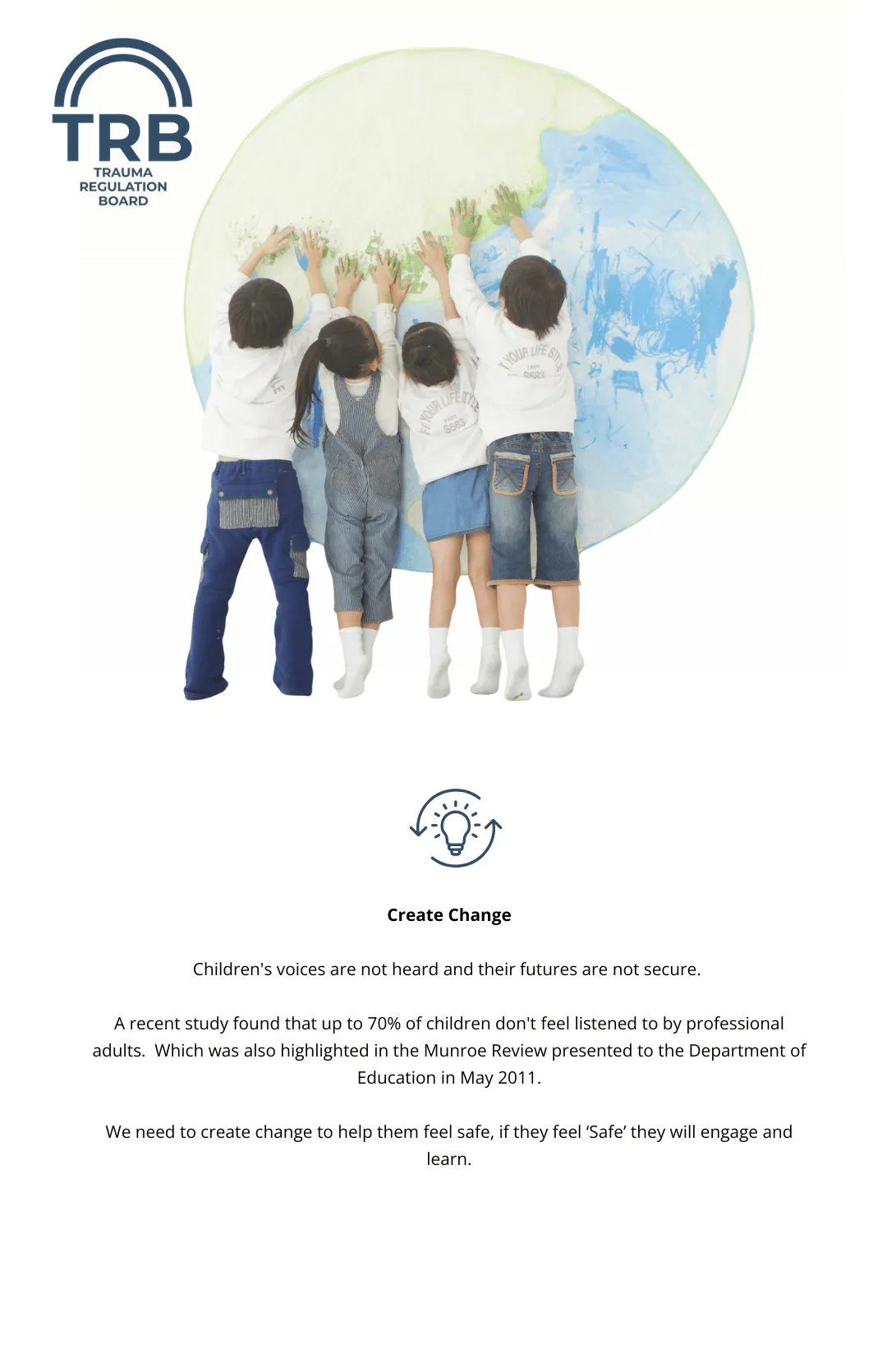Join the TRB and Lead as a Trauma-Informed School
Joining the TRB equips your school with trauma-informed capacity from day one. Every teacher receives free trauma-awareness training, with clear pathways into accredited qualifications at half the usual cost. This demonstrates your school’s commitment to safeguarding and wellbeing, while making professional development affordable, scalable, and aligned with nationally recognised standards.
Unable to learn, focus and enjoy school or their lives full stop…
Trauma interrupts the neurological development of the brain, therefore children who have experienced adverse childhood experiences and experience trauma are less likely to engage in learning.
The changes which occur in response to and the accommodation of trauma effect the essential areas of brain which are needed for processing information.
Essentially, when a child is in a constant state of fear due to trauma residing in the body, brain, emotions and cognitions the correct functioning of the brain is offline and an adaptive information processing centre is established.
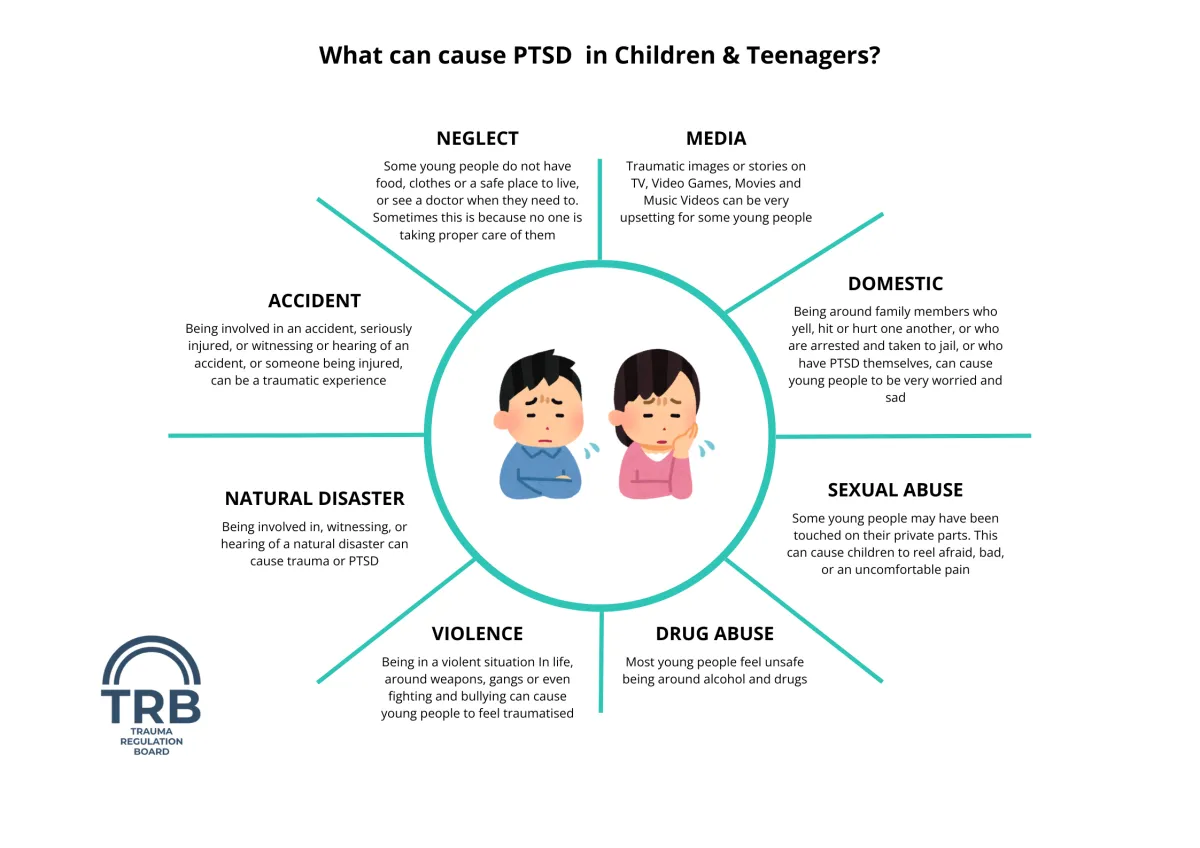
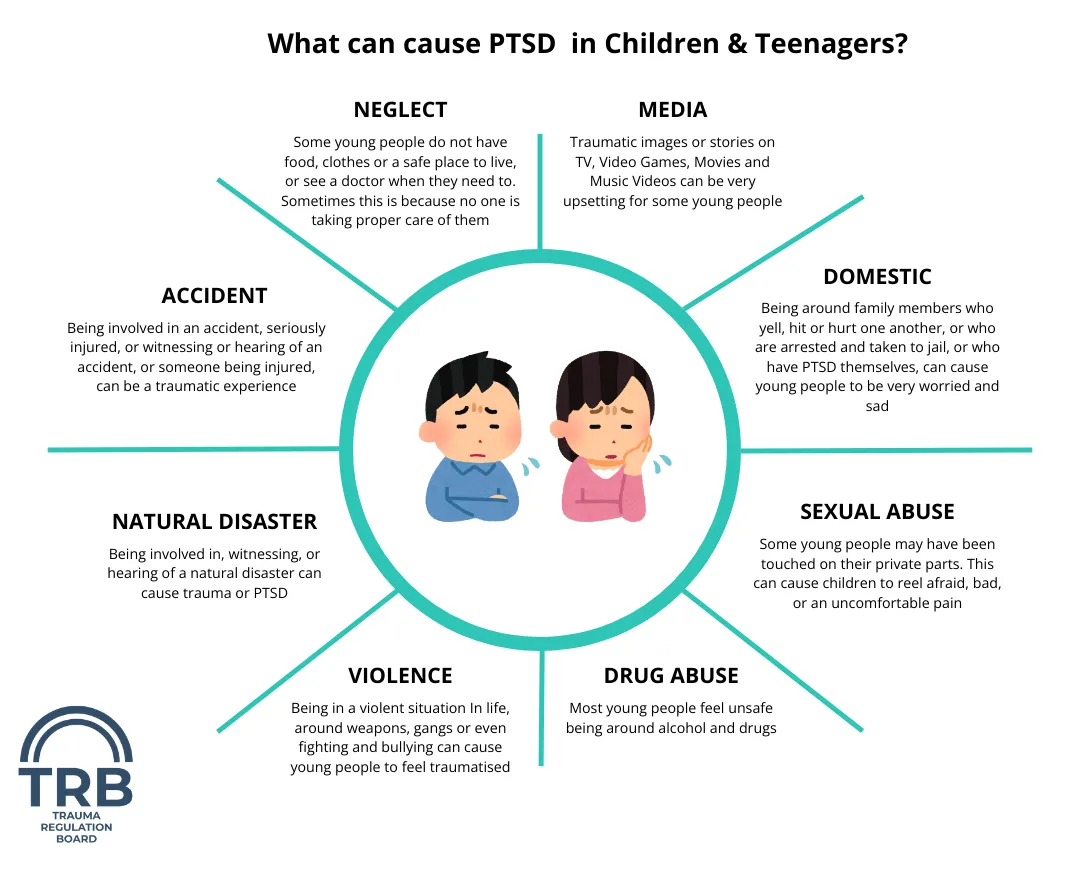
How does Trauma affect the Brain?
Trauma can affect the way a young person's brain 'normally' grows
All human beings have an alarm system called the 'limbic system' which is also the centre of our emotions (including fear)
Inside the limbic system there is a small almond shaped mass of grey matter, called the 'amygdala.' The amygdala is part of the limbic system, and is activated when people feel frightened, or when they freeze with fear, or when people think they are going to die
Following trauma the amygdala (alarm system) can become confused
and therefore think there is a problem when there is not
This means that sometimes young people can feel frightened and want to run and hide, want to fight, or become frozen when there is no need to
When this alarm system goes off it can cause their heart to beat faster, their hands to shake, or they may get a dry mouth and feel jumpy
This is normal, it is their brain and body's way of telling them that
danger is close by
Long-term effects of Trauma
After an event we may forget the trauma, but we may remember the feelings that the trauma caused.
These feelings may be stress, fear, anxiety, panic, hopelessness and/or confusion.
These feelings can make our brains think the trauma and danger is happening now, even when it isn't.
This behaviour is normal, and we can provide lots of tools and training to help them manage this.
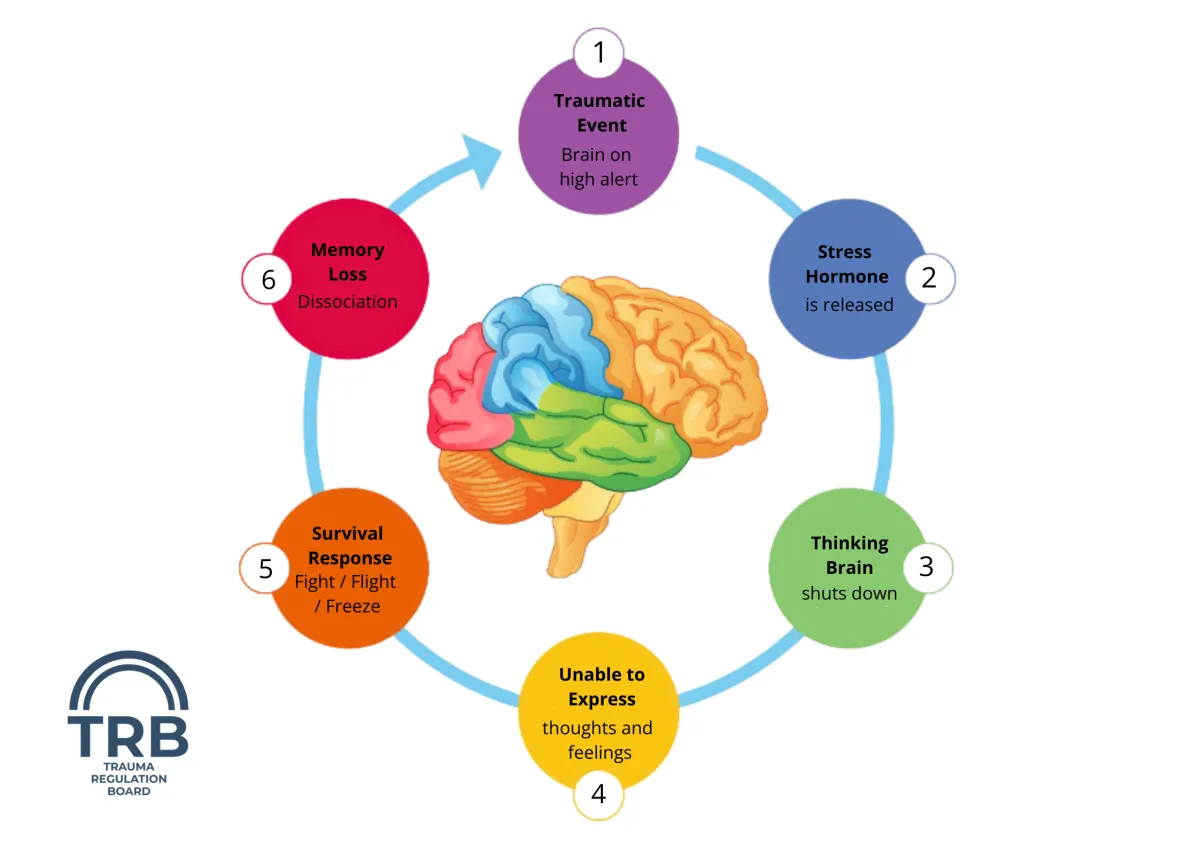
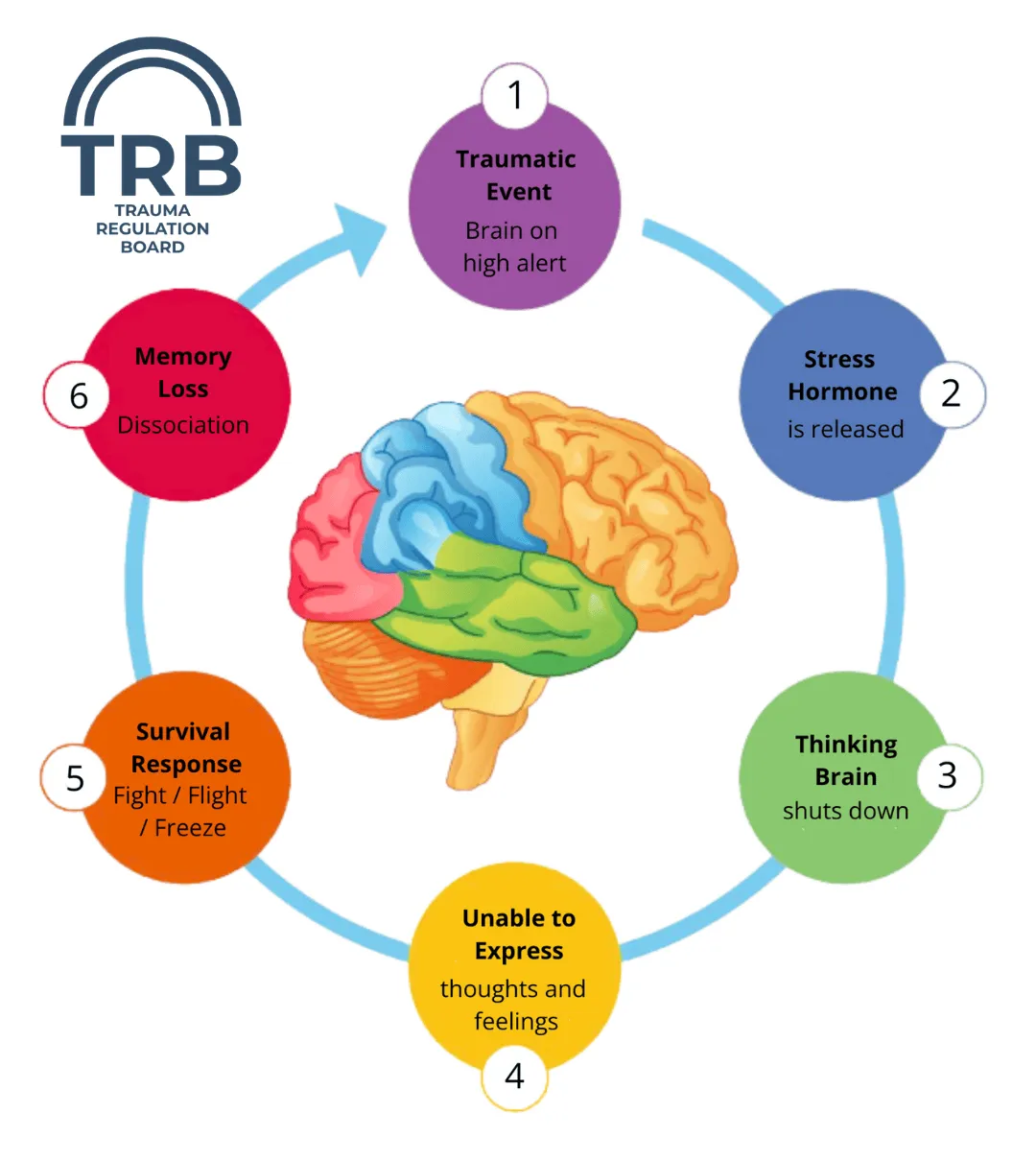
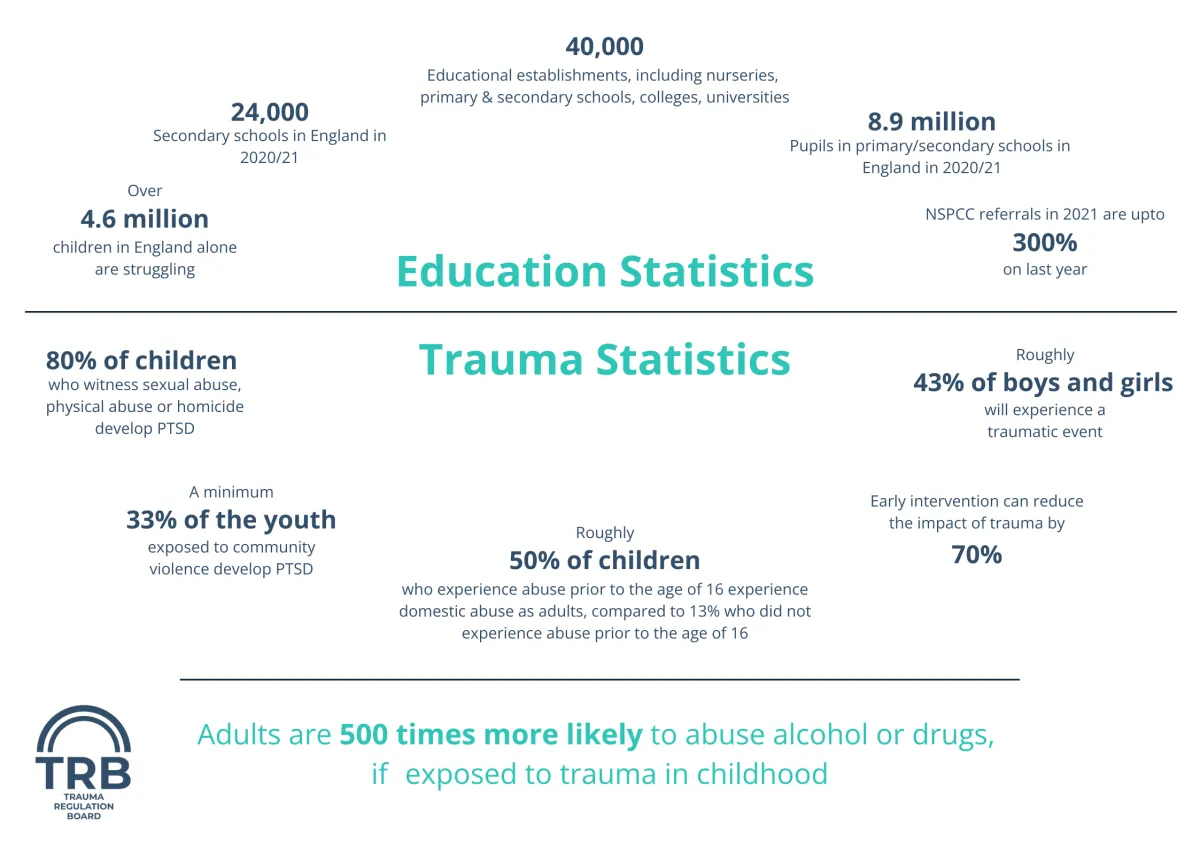
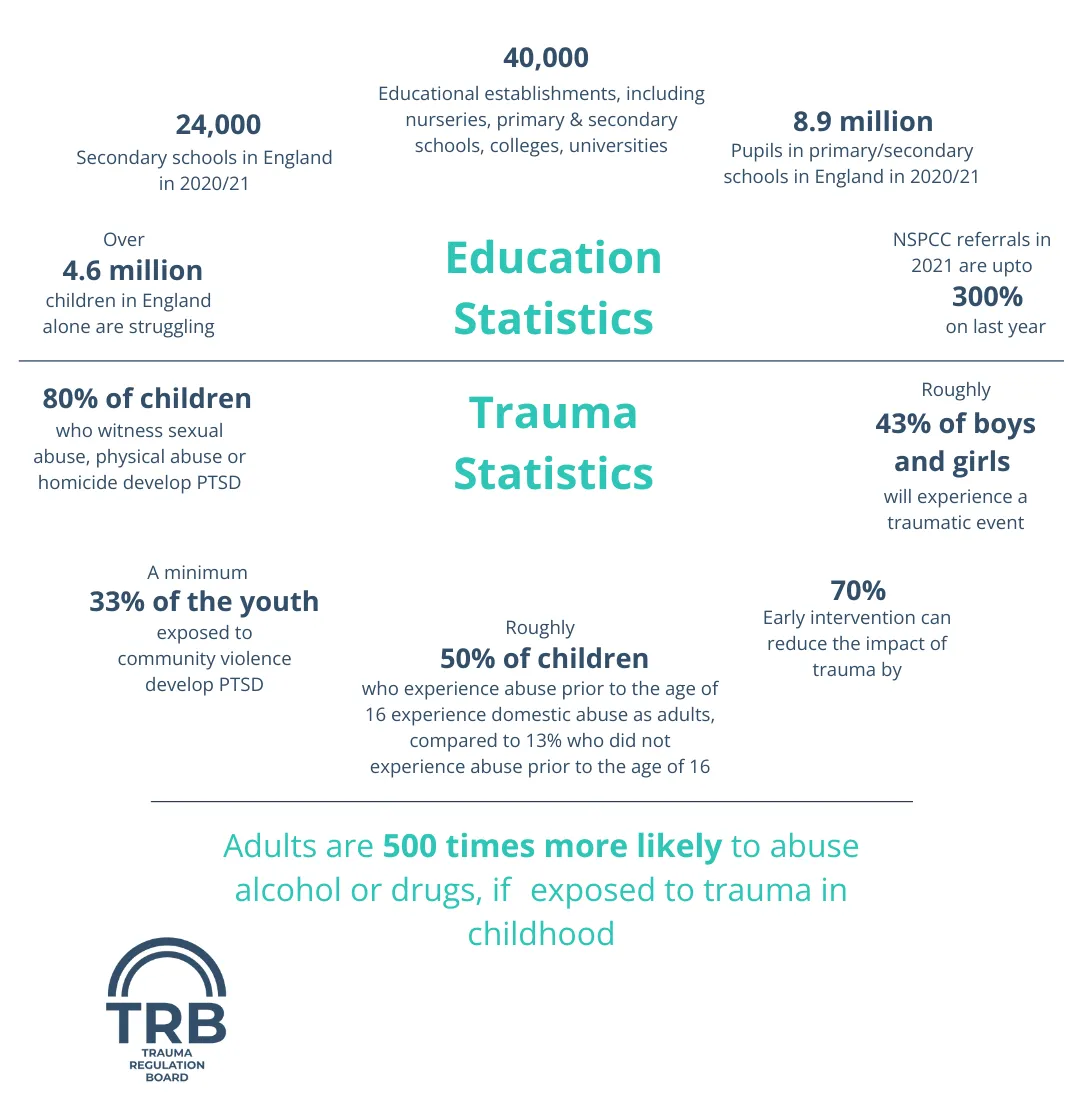
TRAUMA
An experience so powerful that someone may feel that their life, or someone else's life, is in danger
An event so scary that someone may feel overwhelmed, helpless and unsafe in their life
Something that someone may feel is so shocking that they, or someone else, could be injured so badly that they are stunned by it
Something that is hard to understand and/or is scary
PTSD
When someone experiences something frightening and it still bothers them after a month
Can happen to someone after one event
Can also happen after lots of events that have happened for a long period of time (complex PTSD)
Sometimes the symptoms do not show until a while after the event
Join the TRB
Become a Trauma-Focused Educator
Join the TRB Mailing List
Receive trauma-informed insights, practitioner updates, and exclusive newsletters directly to your inbox

© 2026 Trauma Regulation Board - All Rights Reserved │ Privacy Policy │Terms & Conditions
The Trauma Regulation Board operates under a non-exclusive licence from The Fairhurst Foundation LLC for the use of all trauma frameworks, models, assessment tools and educational content.
